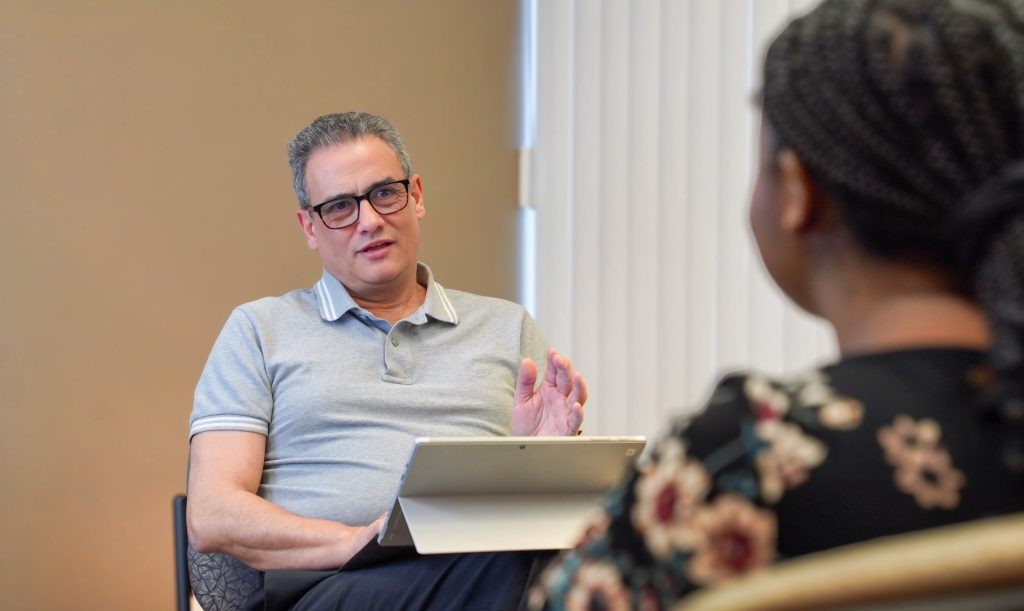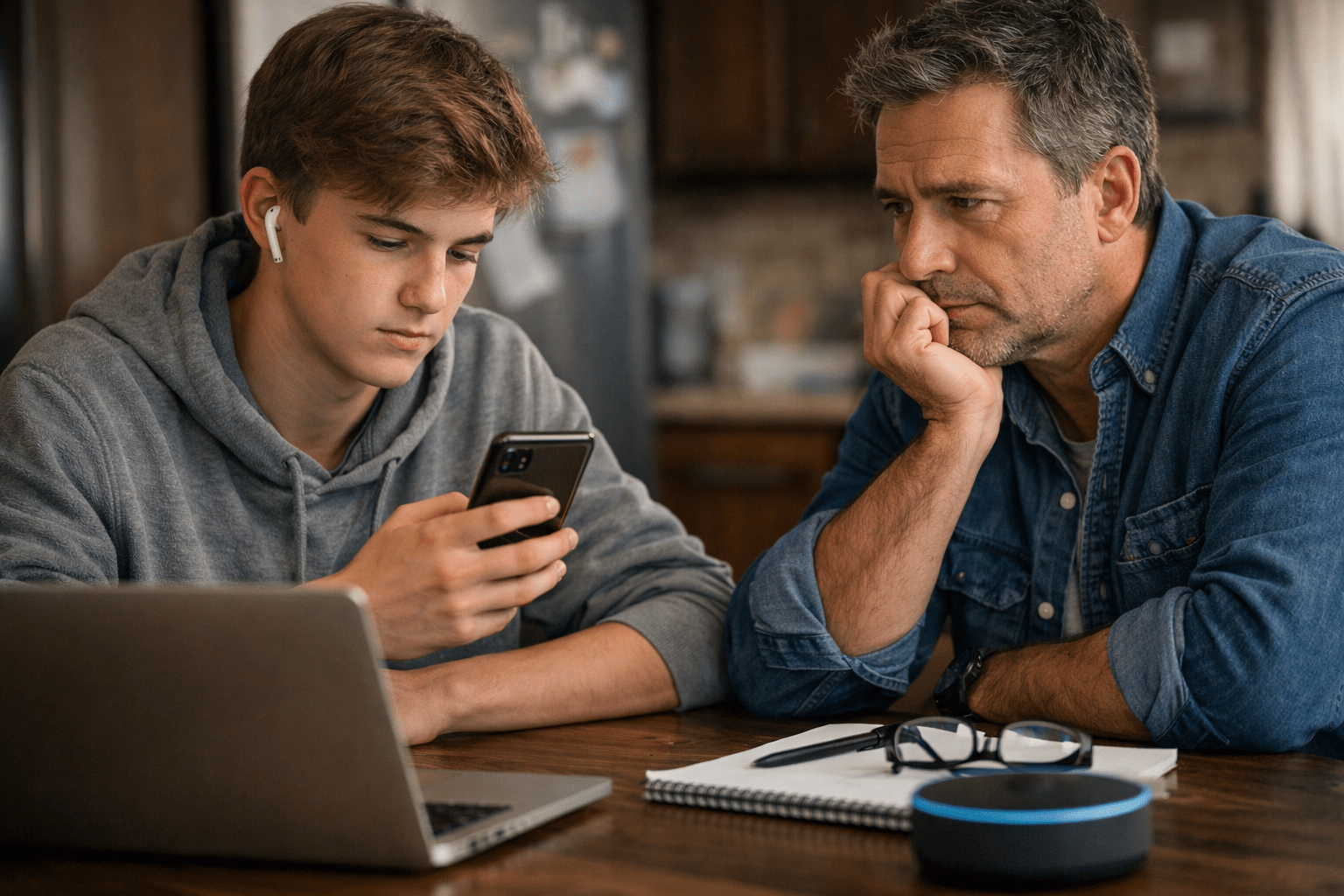We all look for clarity when life gets heavy. Whether it’s after a tough day, a hard conversation, or that sense of being stuck in your own head, it’s natural to want quick answers or a fresh perspective.
We’ve all had those moments. You’re not alone.
In moments like these, it might seem easier to turn to something right at your fingertips – a podcast, a self-help article, or even an AI chatbot. Tools like ChatGPT can be surprisingly comforting at first. Type in what you’re feeling, and you’ll likely get a thoughtful-sounding response, a list of coping strategies, or even a simulated “conversation” that seems emotionally in tune.
But if you’ve ever walked away from that interaction still feeling unseen or misunderstood, you’re not imagining it.
Because no matter how advanced the tech gets, AI doesn’t replace the experience of talking to someone who truly gets it. Someone who knows how to respond not just with words, but with wisdom, empathy, and nuance.
Because the truth is: AI can’t understand you the way another person can.
AI Responds. People Relate.
AI tools are trained to detect patterns. They can mirror certain tones, generate calming language, and offer generic coping strategies. But they don’t understand context.
The AI tools and chatbots don’t know your story.
They don’t pick up on the change in your voice when something vulnerable comes up.
The AI tools don’t ask thoughtful follow-up questions based on intuition or a gut feeling. Everything is pre-programmed. They just don’t know you!
Therapists, on the other hand, do much more than listen to words. They tune into emotions. They notice what’s not being said. Therapists remember what matters to you, and they gently guide the conversation in ways that build trust and support over time.
What makes therapy powerful isn’t just tools or techniques. It’s the emotional intelligence of the person sitting with you. A therapist brings empathy, perspective, and in many cases, shared life experience that allows them to really understand where you’re coming from. AI hasn’t lived through heartbreak, grief, trauma, racism, or burnout. It hasn’t grown up in a complicated family, faced a mental health crisis, or rebuilt a life from scratch.
And that matters. Because you are not a puzzle to be solved. You are a person to be known.
Therapy Is a Relationship, Not a Script
AI may offer quick answers, but real therapy invites ongoing conversation. It changes as you grow. It adapts to your needs. It’s not about fixing you. Therapy is about helping you understand yourself more deeply and respond to life’s challenges with clarity and care.
Yes, AI can support mental wellness. It can track your mood, offer journaling prompts, and give mindfulness tips. But can it sit with your pain? Can it help you name what hurts when you don’t have the words? Can it gently challenge your thinking in a way that helps you grow?
Not really.
Real Connection Is Still the Heart of Healing
We live in a world that moves fast and relies on technology for almost everything. But healing still happens through something ancient and deeply human – real conversation, empathy, and trust. If you’re feeling overwhelmed, anxious, or stuck, you don’t need a chatbot. You need a person. Someone who’s trained to help, but also human enough to care.
Let’s Talk. For Real.
We offer in-person and online sessions. You can start with a free 15-minute consultation to explore your options.
Book a call with one of our compassionate therapists, or speak with our Intake Specialists to find the therapist who feels like the right fit for you.
No pressure – just an offer to start somewhere.







